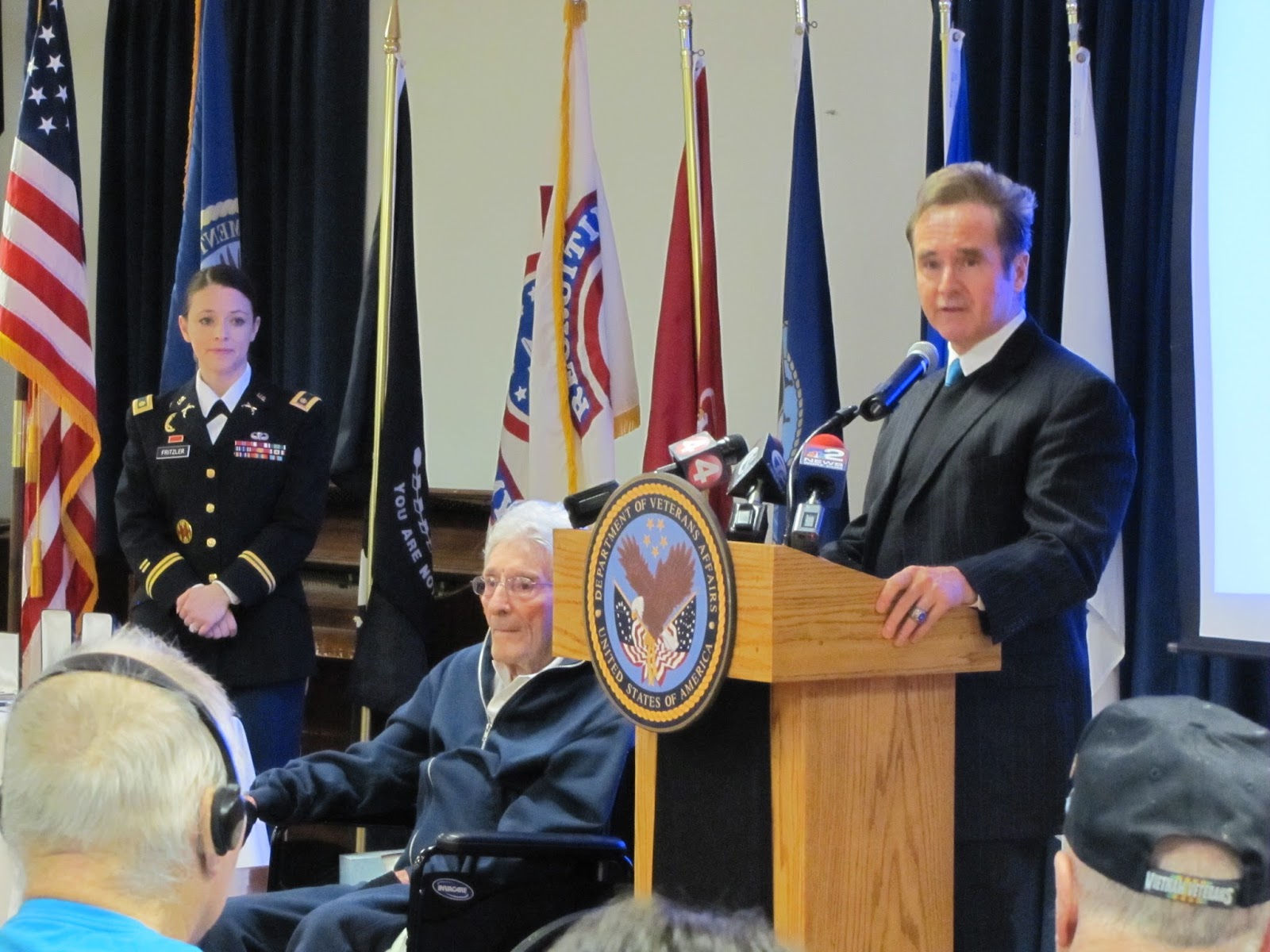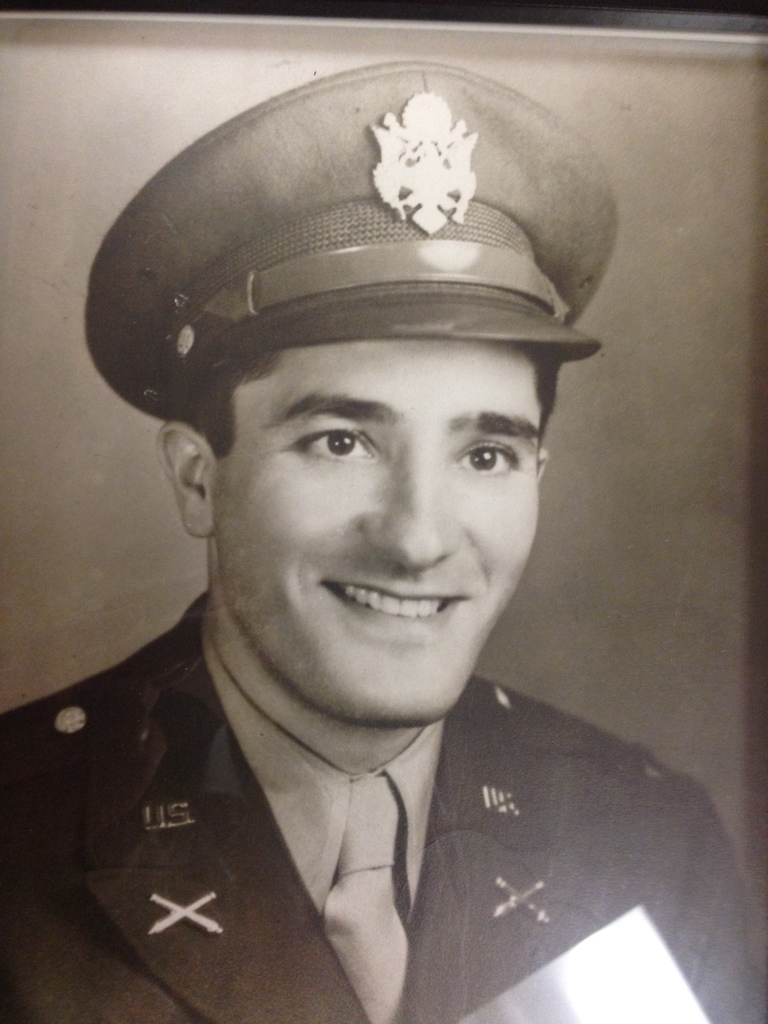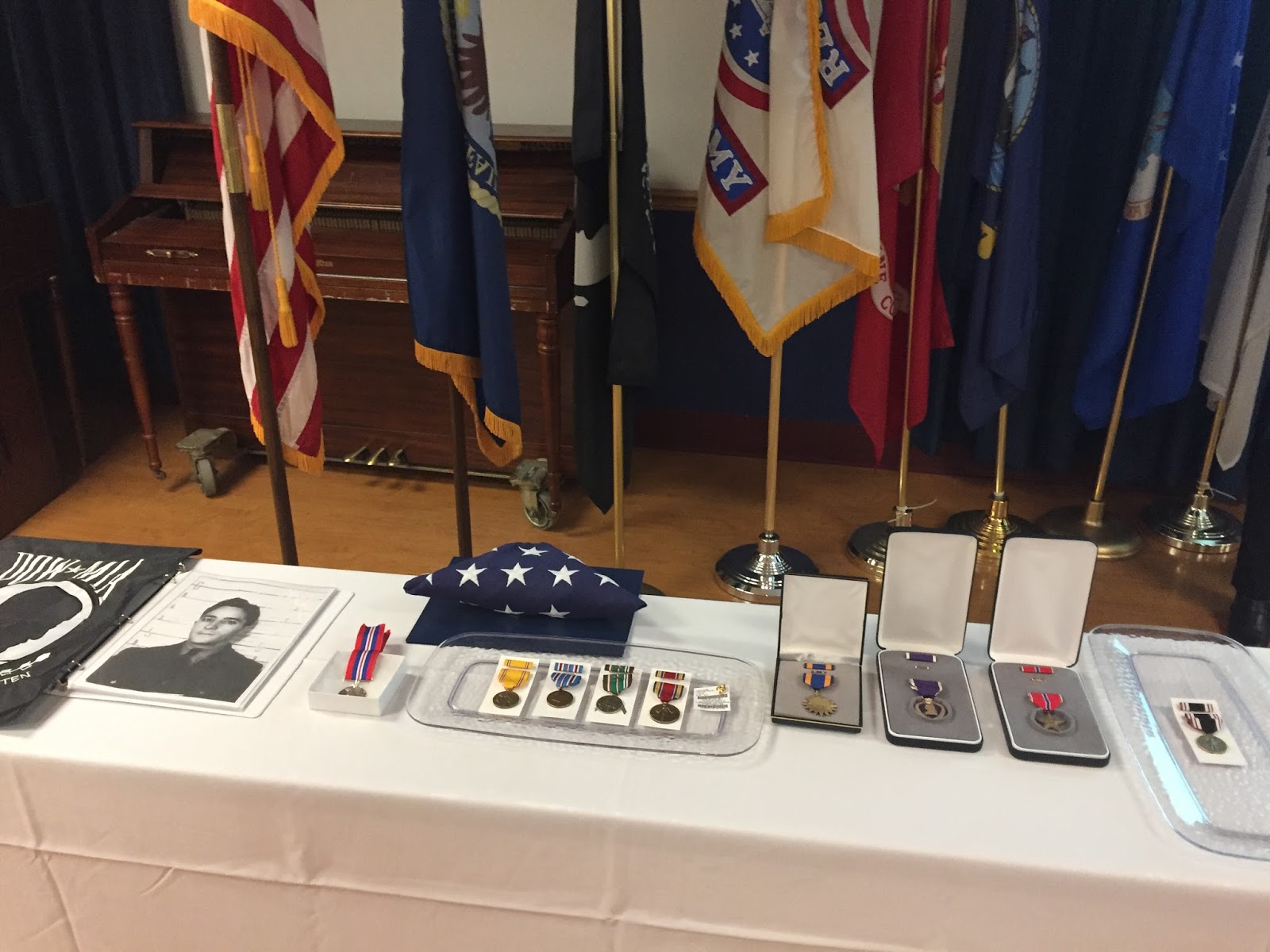
STAFF REPORTS
news@allwnynews.com
Congressman Brian Higgins (NY-26) joined members of the United States Army, Veterans of Foreign Wars VFW, American Legion, Military Order of the Purple Heart, along with City Honors High School students and Principal Dr. William Kresse, to celebrate the service of and present military medals to World War II veteran and Prisoner of War survivor Sydney Cole.

“Captain Sydney Cole’s story of service to this country more than 75 years ago is one that should be remembered and retold,” said Congressman Brian Higgins. “It is a story of bravery and sacrifice. It is a reminder of the importance of the religious freedoms we value. It is validation that one person can make an enormous difference in this world.”
“Sydney Cole is a living example from the greatest generation and is one of our national treasures,” commented Brian Stiller, Director, VA Western New York Healthcare System. “We are fortunate to have this special medal presentation here at VA to honor and mark his heroism and love for our country.”
In a ceremony, Congressman Higgins and members of the United States Army presented Captain Sydney Cole with his medals.
Mr. Cole received from Canada:
The War Medal 1939-1945 – awarded for 28 days of service between September 3rd, 1939 and September 2nd, 1945.
From the United States:
- American Defense Service Medal,
- American Campaign Medal,
- European-African-Middle Eastern Campaign Medal with 2 bronze service stars,
- World War II Victory Medal,
- Honorable Service Lapel Button WWII,
- Air Medal,
- Purple Heart Medal – for injuries sustained in action while serving in World War II,
- Bronze Star Medal – awarded to members of the military distinguishing themselves by heroic service while engaged in an action against an armed enemy. It is one of the highest awards presented to the military for acts of merit,
- POW Medal – awarded to members of the U.S. Armed Forces taken prisoner during armed conflict.

Mr. Cole was also surprised with a presentation of his Fosdick-Masten Park High School diploma and officially inducted into the City Honors distinguished alumni hall of fame.
City Honors Principal Dr. William Kresse said, “We really work to be sure that our students understand the heritage of Fosdick-Masten Park High School. So they tend to have great reverence for Fosdick-Masten, but learning about Mr. Cole’s life voyage has really affected them in a powerful way. Kids these days are witnessing a complicated, violent and often hateful world. It’s really important for them to understand that these things have happened in another day and age and that at people like a young Sydney Cole rose above it to be courageous and help others. The entire City Honors/Fosdick-Masten Park community is incredibly proud to acknowledge Mr. Cole today as an important part of the proud history of our school.”
Born in New York City in 1914 to Russian immigrants Max and Lena Cohn, Sydney was one of five children. His father, who made a living in restoring older homes, was sent to Buffalo to work on a mansion on Delaware Avenue and the family settled into a house on Shoreham Drive in North Buffalo.
Captain Cole’s Story:
Mr. Cole attended elementary school at Buffalo Public School #32 and high school at Fosdick-Masten Park, now known as City Honors. Sydney, who served as Captain of the swim team, won the All High Medal and led his team to become city champions from 1932 to 1933.
After high school he worked as a salesman for Brost Motors Inc. and then for Packard Buffalo Inc. both located on Main St. in Buffalo as well as his father’s business Cohn Plumbing Supply Company on William St. in Buffalo. But Mr. Cole’s passion was aviation and when World War II broke out in Europe he sought out to join the Allied Forces.
Mr. Cole’s application to the highly competitive United States Air Corps was initially declined but that didn’t stop him. In July of 1941, before the United States entered into World War II, he traveled 120 miles to Toronto, Canada and enlisted in the Royal Canadian Air Force. On January 21st, 1942 he was discharged by the Canadian Royal Air Force, returned back to Buffalo, NY and signed up for the United States draft. On September 16th, 1943 he joined the United States Army so he could continue to support the Allies.
Then – First Lieutenant Cole flew an artillery observation plane for the 776th Field Artillery Battalion. He remembers that the enemy would do everything possible to shoot his plane down every time his plane was in the air. He often flew in bitter cold temperatures and through snow storms. First Lieutenant Cole recalls using blow torches to warm the engine oil in the planes. Cole was involved in the battle of Rhineland and the Ardennes Campaign, known as the Battle of the Bulge, from December 16th, 1944 to January 25th, 1945. He will never forget what happened to him in the early morning hours of January 2nd, 1945 when his plane was shot down; he saved his copilot, risking his life and became a prisoner of war.
The Prisoner of War Medal citation details Mr. Cole’s heroism:
“While serving as Chief Forward Aerial Observer for the 776th Field Artillery Battalion, Cpt. Cole and his aircraft encountered severe inclement weather which required him to remain on station in support beyond normal duration. While on station, Cpt. Cole’s aircraft was hit by enemy anti-aircraft fire and disabled. Cpt. Cole’s aviation skill and prior experience as a glider pilot enabled him to place the aircraft in glide mode while he and his co-pilot struggled to exit the aircraft. When the co-pilot’s headset was tangled in the door of the craft, Cpt. Cole went to the aid of his comrade and freed him to parachute safely behind friendly lines. In so doing, however, Cpt. Cole delayed his own departure from the crippled aircraft enough so that he descended behind German lines. During his descent, Cpt. Cole was fired upon by German troops and sustained multiple gunshot wounds to his left arm and leg. Cpt. Cole was later captured by retreating enemy armored troops and transported to Germany for incarceration at German Stalag IVF (pronounced Four F). As one of only three officers at the prison,
Cpt. Cole commanded some 150 enlisted prisoners. Despite his ill-treated wounds and diminished body weight of only 95 pounds, Cpt. Cole was instrumental in maintaining high levels of discipline and morale among the enlisted men and served as an inspiration and an example of American military conduct while in enemy custody. Cpt. Cole’s heroism at the risk of his own life, his dedication to the principals of freedom and his exemplary devotion to his duty as an American fighting man are in keeping with the highest traditions of the American military and reflect great credit on him, his unit and the United States Army.”
When Captain Cole landed he remembered that his “dog tags” indicated his religion on them. C stood for Catholic, P for Protestant, and H for Hebrew. Knowing that he would be sent to a concentration camp and likely killed if the Germans found out he was Jewish he threw his tags as far into the woods as possible. There were bullet holes in his parachute which he managed to wrap around his left arm and leg to subside the bleeding before he lost consciousness. Captain Cole laid on the ground bleeding for about two days and nearly froze to death before being transported on the outside of a German tank.
He was assigned to a POW camp run by the Hitler Youth where many of the prisoners were killed. He was interrogated, beaten and locked in a cellar of rotten potatoes. He was fed soup made of grass and potatoes, and wasn’t allowed to shower or shave. From January through May his weight went from 145 pounds to 95 pounds.
Eventually Mr. Cole and other prisoners were sent on boxcars to Stalag IVF POW Camp on the Polish-German border. He remembers the train ride in which an English doctor, who was also a prisoner, picked the shrapnel out of his leg. Upon arrival, he was asked about his religion and reported he was Protestant. When he got to the camp those who were Jewish were sent away, never came back, and were likely executed. As one of three officers there he was assigned to lead a Battalion. The camp was abandoned and in May of 1945 the Russians came in with medical personal and ripped the barbwire off the camp. They treated his infection and gave him food. A couple months later there was a prisoner exchange and he was officially free.
He was happy to have his freedom but would encounter further evidence of the Holocaust he reported even more difficult than his personal experiences as a Prisoner of War. Captain Cole recalls coming upon a satellite of Auschwitz abandoned by the Germans. He witnessed mass open graves of Jewish victims of the Holocaust. Frail Jewish prisoners too weak to move remained in the camp including a woman who died in his arms as he spoon fed her.
Captain Cole was discharged from the Army on December 27th, 1945. He returned to Buffalo, married Sybil Richard, the love of his life, and had one child, Richard Cole. He owned Cole Motors on Main Street from 1946 to 1972 and worked as the manager of the Buffalo Athletic Club from 1978 to retirement.
Mr. Cole’s bravery has not gone unnoticed. He was the Grand Marshals in the 2015 Buffalo Veterans Day Parade, was recognized on the anniversary of Pearl Harbor during the Buffalo Bills Game, and awarded the first annual D’Youville College Sydney Cole Award in 2016 for his service to his country.

